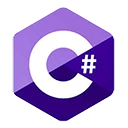Introduction
JSON (JavaScript Object Notation) is a lightweight data interchange format that is widely used in web development, including C# applications. It provides a simple and human-readable way to represent data. This guide offers a comprehensive introduction to working with JSON in C# and includes sample code to help you get started.
What Is JSON?
JSON is a text-based data format that is easy for both humans and machines to read and write. It consists of key-value pairs and arrays, making it ideal for data exchange between a server and a client. JSON is often used in web APIs to send and receive structured data.
JSON in C#
C# provides built-in support for working with JSON through libraries such as Newtonsoft.Json (Json.NET). Here are some common use cases for JSON in C#:
- Serializing Objects: You can convert C# objects into JSON format, making it easy to transmit data to web services or store it in a JSON file.
- Deserializing JSON: You can convert JSON data back into C# objects, allowing you to work with data received from web services or read from JSON files.
- Manipulating JSON: You can work with JSON data directly to extract or modify values as needed.
Sample JSON Code
Below is an example of serializing a C# object to JSON and then deserializing it back to an object. This demonstrates the basic usage of JSON in C#.
C# Code (Serialization and Deserialization):
using Newtonsoft.Json;
public class Person
{
public string FirstName { get; set; }
public string LastName { get; set; }
public int Age { get; set; }
}
class Program
{
static void Main()
{
// Serialization
var person = new Person
{
FirstName = "John",
LastName = "Doe",
Age = 30
};
string json = JsonConvert.SerializeObject(person);
Console.WriteLine("Serialized JSON:");
Console.WriteLine(json);
// Deserialization
var deserializedPerson = JsonConvert.DeserializeObject<Person>(json);
Console.WriteLine("Deserialized Object:");
Console.WriteLine($"First Name: {deserializedPerson.FirstName}");
Console.WriteLine($"Last Name: {deserializedPerson.LastName}");
Console.WriteLine($"Age: {deserializedPerson.Age}");
}
}
Conclusion
JSON is a versatile data format used in C# for various purposes, including data exchange, storage, and configuration. This guide introduced you to JSON, explained its role in C# development, and demonstrated how to serialize and deserialize objects using the Json.NET library. As you continue your C# development journey, JSON will be a valuable tool for handling structured data.

